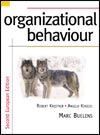 |
1 |  | 
People who believe they control the events that affect their lives are said to possess an internal locus control. |
|  | A) | True |
|  | B) | False |
 |
 |
2 |  | 
According to Figure 5-6, a person with an ST (sensation/thinking) cognitive style develops greater abilities in technical areas involving facts and objects. |
|  | A) | True |
|  | B) | False |
 |
 |
3 |  | 
______________ is the view the individual has of himself or herself as a physical, social, and spiritual or moral being. |
|  | A) | Self-concept |
|  | B) | Self-efficacy |
|  | C) | Organizational-based self-esteem |
|  | D) | Cognition |
|  | E) | Personality |
 |
 |
4 |  | 
Individuals who see themselves as worthwhile, capable, and acceptable have ___________ |
|  | A) | an external locus of control. |
|  | B) | high self-efficacy. |
|  | C) | high extraversion. |
|  | D) | high self-esteem. |
|  | E) | high organization-based self-esteem. |
 |
 |
5 |  | 
One factor influenced by organization-based self-esteem is |
|  | A) | managerial respect. |
|  | B) | organizational structure. |
|  | C) | citizenship behaviour. |
|  | D) | job challenge. |
|  | E) | job complexity. |
 |
 |
6 |  | 
____________ is a person’s belief about his or her chances of successfully accomplishing a specific task. |
|  | A) | Self-concept |
|  | B) | Self-efficacy |
|  | C) | Self |
|  | D) | Cognition |
|  | E) | Personality |
 |
 |
7 |  | 
According to research on self-monitoring, which of the following is true? |
|  | A) | Low self-monitors were more likely to acquire a mentor. |
|  | B) | High self-monitors received more promotions than did low self-monitors. |
|  | C) | Low self-monitoring individuals were more likely to achieve career success. |
|  | D) | Self-monitoring is an either - or proposition. You either fall into one category or the other. |
|  | E) | Low self-monitors were often perceived as insincere, phony, and untrustworthy. |
 |
 |
8 |  | 
Among the Big Five personality dimensions, ____________ had the strongest positive correlation with job and training performance. |
|  | A) | extraversion |
|  | B) | agreeableness |
|  | C) | conscientiousness |
|  | D) | emotional stability |
|  | E) | openness to experience |
 |
 |
9 |  | 
Research findings indicate that, compared to those with an internal locus of control, workers with an external locus of control |
|  | A) | have stronger expectations that effort leads to performance. |
|  | B) | relate job satisfaction to performance more strongly. |
|  | C) | demonstrate greater work motivation. |
|  | D) | obtain higher salaries. |
|  | E) | are more anxious. |
 |
 |
10 |  | 
A(n) _________________ is defined as a learned predisposition to respond in a consistently favourable or unfavourable manner with respect to a given object. |
|  | A) | attitude |
|  | B) | cognition |
|  | C) | skill |
|  | D) | ability |
|  | E) | value |
 |
 |
11 |  | 
According to Fishbein and Ajzen’s model, an individual’s __________ is the best predictor of behaviour. |
|  | A) | value |
|  | B) | subjective norm |
|  | C) | attitude |
|  | D) | intention |
|  | E) | ability |
 |
 |
12 |  | 
______________ represents a broad and stable characteristic responsible for a person’s maximum - as opposed to typical – performance on mental and physical tasks. |
|  | A) | Skill |
|  | B) | Ability |
|  | C) | Self-efficacy |
|  | D) | Self-esteem |
|  | E) | Intelligence |
 |
 |
13 |  | 
Which of the following mental abilities was found to be a valid predictor of job performance for both minority and majority applicants? |
|  | A) | Memory. |
|  | B) | Perceptual speed. |
|  | C) | Mnemonic fluency. |
|  | D) | Spatial ability. |
|  | E) | Deductive reasoning. |
 |
 |
14 |  | 
According to Jung’s cognitive styles typology, sensation means interpreting situations by using one’s |
|  | A) | common sense. |
|  | B) | physical senses. |
|  | C) | past experiences. |
|  | D) | feelings. |
|  | E) | imagination. |
 |
 |
15 |  | 
___________ is a goal incongruent emotion. |
|  | A) | Joy |
|  | B) | Pride |
|  | C) | Love |
|  | D) | Sadness |
|  | E) | Relief |
 |




 2002 A McGraw-Hill Online Learning Centre
2002 A McGraw-Hill Online Learning Centre